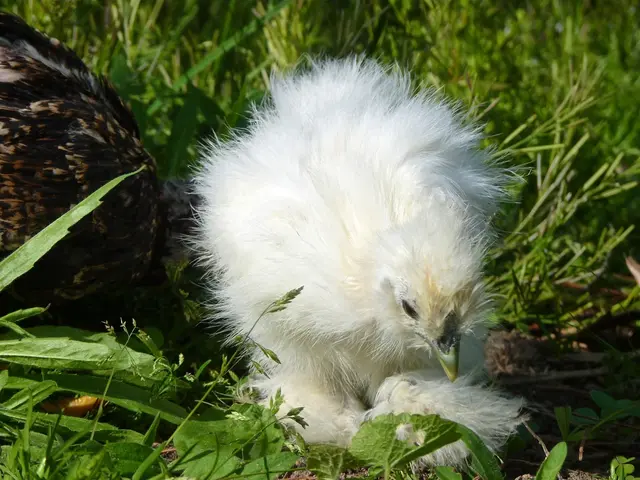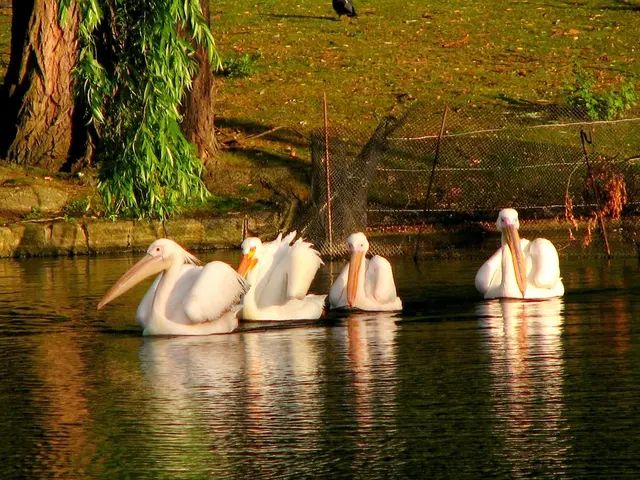Homemade Bug-Repellent Compost Spray Formulations: Embracing Mother Nature's Secrets to Ward Off Pests from Your Compost Bin
Hangin' Out in Your Compost Pile: A Comprehensive Guide
- Green Thumb Goldmine: Composting 101
- Unsavory Residents: Common Pests in Compost
- Weeding Out the Bad Guys: Keeping Your Compost Pile Pest-Free
- Spray away those Pests: DIY Anti-Insect Compost Spray Recipes
Heads up, green thumbs! Composting is a game-changer for your garden. But, as with any ecosystem, it's home to both helpful and mischievous critters. This guide walks you through the charming assistants and troublesome pests making their home in your compost heap, as well as some natural solutions to deter unwanted houseguests.
Green Thumb Goldmine: Composting 101
Composting is the magical process of turning organic waste into black gold, enriching your soil and boosting plant growth. While microbes do the real heavy lifting, little critters like worms and insects play essential roles in the breakdown process. To create a harmonious compost ecosystem, you'll want to identify and, if necessary, troubleshoot any issues.
Unsavory Residents: Common Pests in Compost
Certain organisms can cause problems when they get out of control or become unsightly, going from helpful to harmful. Here are some examples:
- Ants: Indicate a dry compost pile.
- Houseflies: Help break down organic matter but can be pests.
- Cockroaches: Help break down organic matter but can be unwanted.
- Millipedes: Consume decaying matter, but too many millipedes may draw unwanted attention.
- Centipedes: Overly moist conditions can attract these predators, which may harm beneficial organisms.
Weeding Out the Bad Guys: Keeping Your Compost Pile Pest-Free
The best defense against unwanted pests is a healthy, balanced compost pile. Keeping your compost moist but not too soggy is key. Here are some additional tips:
- Avoid Non-Compostable Materials: Don't add meats, dairy, or oily foods to your compost pile, as these attract pests and rodents.
- Turn Regularly: Turning your compost pile encourages aeration and discourages pest habitation.
- Secure Covered Bins: Use covered bins to keep pests from entering.
- Balance Green and Brown Materials: Maintain a proper balance of green (nitrogen-rich) and brown (carbon-rich) materials to avoid odors and attracting pests.
- Companion Plants: In your garden, plant flowers like marigolds, lavender, or alyssum to attract predatory insects that help control unwanted pests.
Spray away those Pests: DIY Anti-Insect Compost Spray Recipes
While beneficial critters are valuable, it's sometimes necessary to employ targeted natural sprays to deter unwanted pests without harming helpful organisms or plants. Here are some recipes for homemade anti-insect compost sprays:
- Garlic or Hot Pepper Spray
- Ingredients: 2-3 bulbs of garlic or 2 tbsp cayenne pepper, 2 cups water, 1 tsp mild liquid soap.
- Instructions: Blend garlic or pepper with water. Strain, add soap, and mix well. Spray on the compost surface to repel pests.
- Neem Oil Spray
- Ingredients: 1 tsp neem oil, 1 quart water, 1 tsp mild liquid soap.
- Instructions: Mix all ingredients thoroughly. Spray lightly on the compost to deter insects and fungus.
- Citrus Oil Spray
- Ingredients: 1 tsp orange, lemon, or lime essential oil, 2 cups water, 1 tsp mild soap.
- Instructions: Mix and spray on compost to help deter insects.
- Maintaining a balanced lifestyle, enriched with a touch of 'home-and-garden' passion, incorporates composting into one's gardening routines, improving not only the soil but also the surrounding ecosystem.
- Nurturing a compost pile involves understanding and addressing potential issues by troubleshooting unwanted 'pests' that affect its harmony, while keeping friendly organisms thriving.







